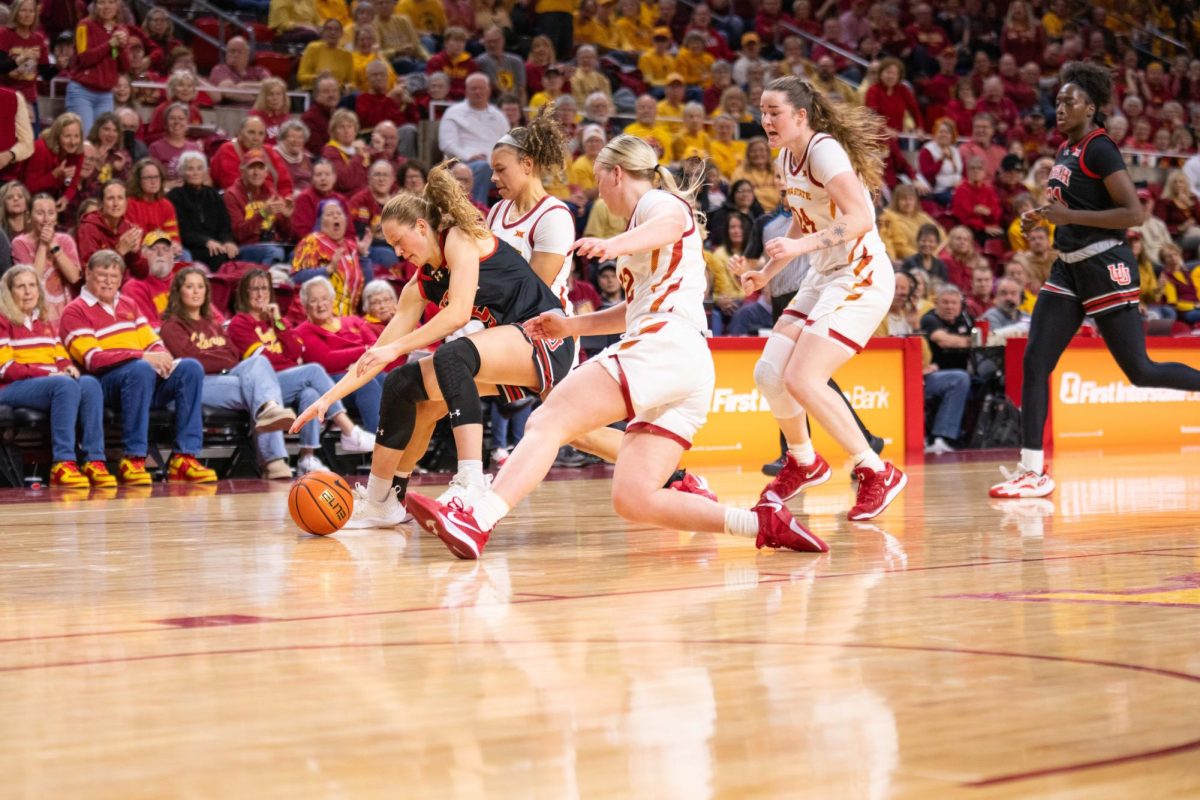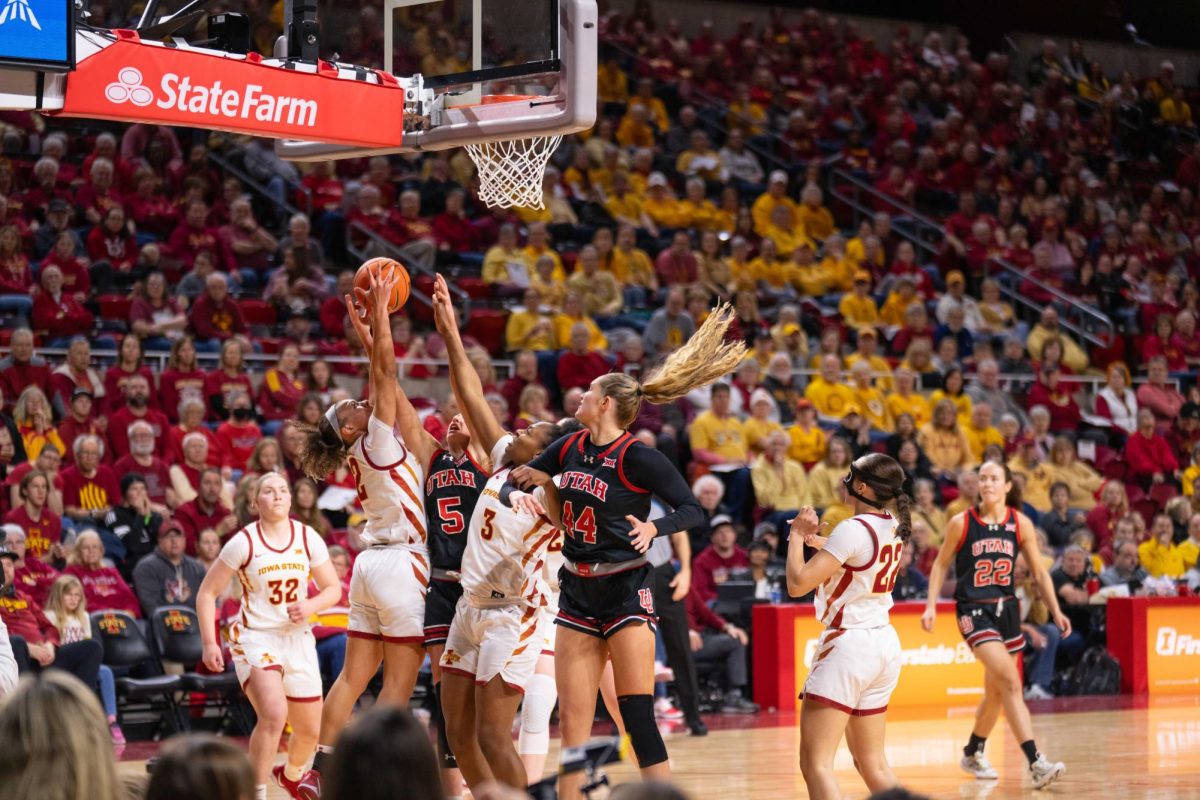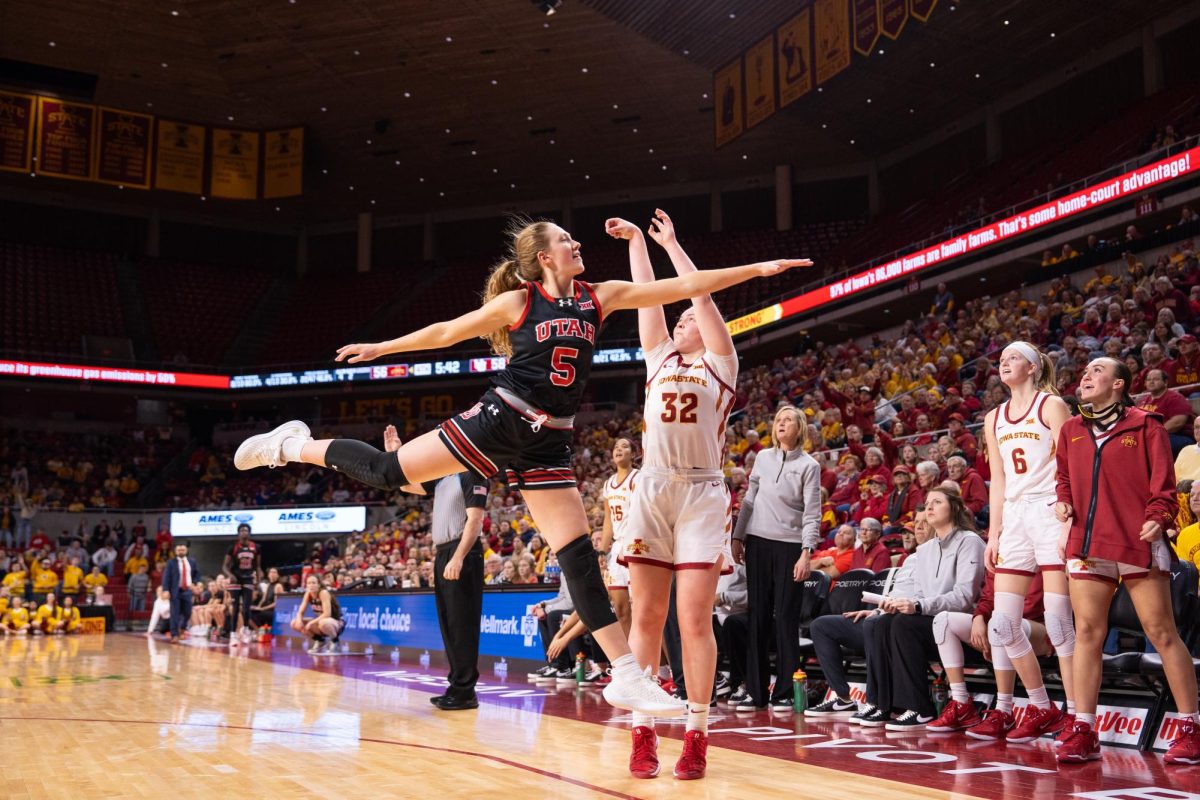ISU breaks ground for Roy J. Carver co-laboratory
October 21, 2001
More than 100 people gathered on the northwest corner of campus to break ground for the Roy J. Carver co-laboratory, the new home of the ISU Plant Sciences Institute.
“Co-laboratory is a new term for a place where university and industry can collaborate and conduct cooperative research,” said Stephen Howell, director of the Plant Sciences Institute. “Faculty and students can work side-by-side with scientists in industry.”
Even though people have sometimes had difficulty in figuring out just where to find the ISU Plant Sciences Institute, the institute already has drawn financial awards, he said.
“For example, the National Science Foundation has a plant genomics research program, and ISU investigators in the Plant Sciences Institute led the nation, tying only with Cornell, capturing those awards,” Howell said.
Genomics is the science that has recently revealed the blueprint for the entire human genome. Plant genomics is the understanding of the blueprint of genetic information in plants.
“[Plant genomics] is the basis for a lot of work being done in plant breeding and many other areas of applied plant sciences right now,” Howell said at Saturday’s ceremony. “Looking back 30 years, it’s amazing that people could work to improve plants without this knowledge.”
He said the knowledge is used “to endow plants with qualities . that producers want and that consumers are interested in.”
There will be many targets for the work, including giving plants increased nutritional characteristics, better processing characteristics and developing plants as bio-renewable resources.
Scientists at the institute also are interested in developing bio-technological plants – endowing plants with the capability of making products that never were produced before.
For example, pharmaceuticals that currently are made through fermentation might be able to be made by the plants themselves, “by turning them into little biological factories,” Howell said.
He said it might be “healthier” to make vaccines in plants rather than growing them in animal materials.
Dirk Charlson, graduate student in agronomy, said he is studying iron nutrition in soybeans. Charlson said he’s excited about the possibility of collaborating with scientists in the new Plant Science labs to do plant breeding and genetic research.
“We can’t be isolated anymore,” he said. “We have to do interdisciplinary projects in order to develop crops of soybeans and corn with value added to them. Right now, prices are low.
In order for producers to make money, they need to add value to that crop . such as high oil or protein content.”
Marna Yandeau, graduate student in agricultural genetics and zoology, said she first “fell in love” with corn research while working on her undergraduate degree and taking a biology course at Drake University.
“For graduate students in particular, [the co-laboratory is] really great, because there’s going to be a lot of new technologies and tools that will be available to all the researchers on campus,” she said.
“And more than that, there’s going to be a lot of space for collaborators and visiting scientists. So, I think it will broaden the scope of research that’s done here.”
Yandeau said students have been integral in the development of the Plant Sciences Institute.
“We have participated in the search for an institute director and other faculty,” she said. “Some of us have even had the opportunity to design laboratory space.”
The ISU Plant Sciences Institute, established in 1999, currently has offices and labs in several buildings on and off campus.
It is an umbrella organization with nine centers, each focused on specific areas of plant sciences.
In January of 2000, the Roy J. Carver Charitable Trust announced a gift of $3 million to establish the Roy J. Carver co-laboratory.
The laboratory will allow six or seven industry scientists to collaborate with more than 200 faculty in 30 different departments on campus.
“The regents have been firmly behind Iowa State’s efforts to establish itself as a world center of excellence in plant science and development,” said Owen J. Newlin, president of the Board of Regents.
“We’ve supported it from the beginning, because we believe it’s a key to Iowa’s economic future.”
Completion of the U-shaped building is expected 18 months after construction begins Nov. 1.
“We’re very proud to have a place we can call home and where people can know where to find us,” Howell said.






